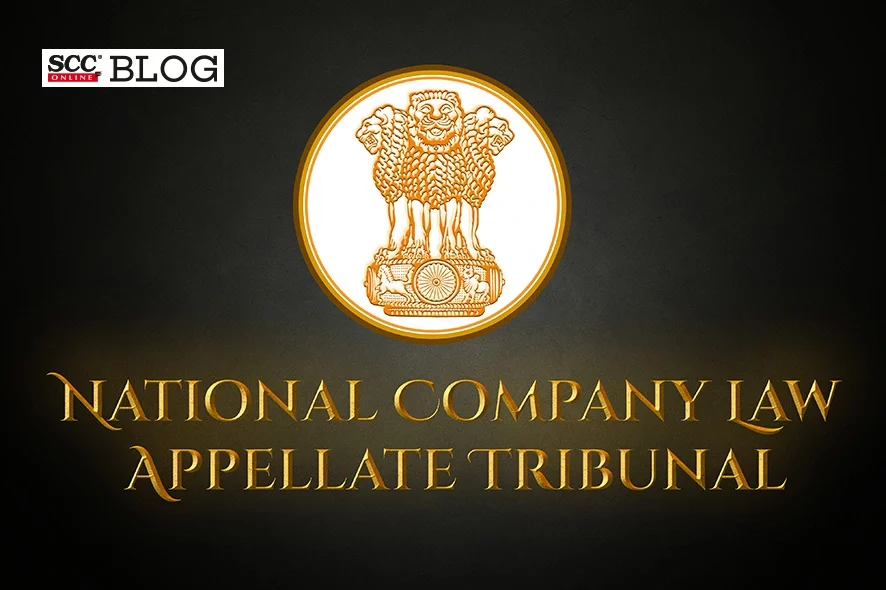National Company Law Appellate Tribunal, New Delhi: In an appeal against rejection of application seeking re-hearing on the ground that the main company petition was reserved for orders and admission of Section 7 application, a 3-member bench comprising of Ashok Bhushan, J., Barun Mitra (Technical Member)* and Arun Baroka (Technical Member), affirmed the Adjudicating Authority’s findings, dismissing the appeals on grounds of meritlessness and a lack of convincing reasons to interfere with the impugned orders.
Brief Facts
The present appeal arises from two orders dated 25-09-2023 passed by the Adjudicating Authority under the Insolvency and Bankruptcy Code, 2016 (IBC). The first impugned order rejected the appellant’s application seeking re-hearing on the ground that the main company petition was reserved for orders. The second impugned order admitted the Section 7 application filed by Respondent 1, initiating Corporate Insolvency Resolution Process (CIRP) against the Corporate Debtor.
In the instant matter, the Corporate Debtor obtained a credit facility from Karnataka Bank Limited (KBL) in 2010. KBL classified the loan as Non-Performing Asset (NPA) on 05-07-2013, leading to a demand notice under the SARFAESI Act. KBL assigned the debt to respondent 1 on 15-12-2014. On 21-10-2016, the Corporate Debtor submitted an OTS proposal to respondent 1 but the same was later revoked. Respondent 1 filed a Section 7 petition under IBC for CIRP, leading to the impugned orders.
Parties’ Contention
The appellant contended that the rejected application should have been heard as the main company petition was incomplete. It was contended that respondent 1 lacked locus to file the Section 7 application, having not directly lent to the Corporate Debtor and no Trust Deed was attached with the Section 7 application, making the same incomplete. It was contended that the Assignment Deed was insufficiently stamped and therefore not admissible in evidence. It was further contended that Section 7 application is barred by limitation due to delay in OTS proposal.
The respondents contended that Section 7 focuses on debt and default and in the case in hand both are established. It was contended that Section 7 application is not barred by limitation as debt was acknowledged in various instances.
Moot Point
Whether the dismissal of application by the Adjudicating Authority on the ground that it was filed after the main company petition was reserved for orders caused any serious miscarriage of justice to the appellant which warrants the setting aside of both the impugned orders as prayed?
NCLAT’s Decision
The NCLAT observed that the appellant was fully aware of respondent 1’s trustee capacity, and of the assignment of debt by the original Financial Creditor to the respondent 1 and the same is evident from the fact that appellant had themselves chosen to send the OTS proposal to respondent 1 instead of sending the same to the original Financial Creditor. The NCLAT observed that “the appellant/Corporate Debtor was not only aware of the assignment of the debt but had accepted and acknowledged this fact by sending the OTS proposal to the assignee. Moreover, the issue of assignment deed was never raised by the Appellant during the hearing of the main petition or at any stage prior to reserving the matter for orders.” The NCLAT stated that the acknowledgment of debt by the Corporate Debtor in balance sheets and OTS proposal is valid.
The NCLAT observed that “the two stages of reserving of judgment and pronouncement of judgment are in a continuum with no hiatus or gap as such in the two stages. That being the well accepted and time-tested practice in court proceedings, subsequent pleadings filed by way of an I.A. after the judgement is reserved is normally not entertained for reasons of procedural propriety.” The NCLAT observed that the Adjudicating Authority applied the same settled position of law that “when a matter is reserved for orders, there is no scope for entertaining application from parties to re-hear the matter.” The NCLAT held that dismissal of rejected application after the main petition was reserved did not cause a miscarriage of justice.
The NCLAT opined that the Adjudicating Authority correctly concluded that technical pleas raised after the main petition’s hearing lacks merit, indicate an attempt to delay CIRP. On not finding any convincing reasons to interfere with the impugned orders, the NCLAT dismissed the appeals.
[Loramitra Rath v. JM Financial Asset Reconstruction Co. Ltd., 2023 SCC OnLine NCLAT 2168, order dated 01-11-2023]
*Judgment by Barun Mitra (Technical Member)
Advocates who appeared in this case :
Mr. Saswat K. Acharya, Mr. Dhananjay Bhaskar Ray, Counsel for the Appellant
Mr. Utsav Mukherjee, Mr. Vikalp Wange, Counsel for the Respondents






